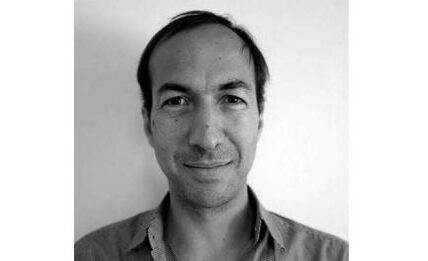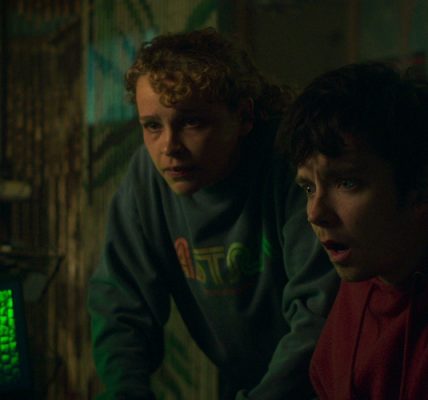In the middle of Algeria’s sprawling landscape, the elderly Ouardia (writer/director Djamila Sahraoui) drags the body of a young man into her home. From the tenderness with which she washes his skin, it is clear that he is her son. Alone, she buries him in the dry earth; suddenly, she is interrupted by a one-armed man, brandishing a rifle, who tells her that only Muslim men are allowed to bury the dead. Wrestling the spade from his grasp, and resolutely ignoring his admonishes, the woman returns wordlessly to her terrible task.
This opening sequence, made all the more startling as it plays with no soundtrack and virtually no dialogue, sets the scene for Sahraoui’s striking follow up to her 2006 feature debut, Bakarat! Ostensibly Yema (meaning ’mother’ in the Berber language) is a story about a mother and her sons, yet, as the narrative begins to unspool, it weaves a far bigger picture; a story of fratricidal civil war on a national scale, of a motherland ripped asunder, distilled right down to this deeply personal tale of a family torn apart.
As it transpires, Ouardia’s son has been killed by an Islamist insurgent group run by his older brother Ali (Ali Zarif) who, we discover, has also sent the one-armed man (Samia Yahia) – himself a victim of the conflict – to stand guard over his mother. Whether he feels the need to do this for fear of her retaliation is unclear, but she becomes, at his behest, a prisoner in her own home. With great determination she tends to her beloved garden, patiently coaxing green shoots out of the same dusty earth in which she has buried her youngest child. As the garden grows, she and the guard slowly develop a bond, and when Ali returns seeking solace, first with an infant son and then seriously injured, further fractions are revealed and already strained loyalties are put to the ultimate test.
Everything about Yema’s construction is careful and deliberate, from its barren, washed out aesthetic to its sparse script; there is no exposition, rather relationships and character dynamics slowly emerge through action and confrontation. And while the metaphors at work may be obvious, the three exceptional performances prevent the narrative from collapsing under its own weighty subtext. It is easy to connect with these characters on an emotional level and, therefore, to invest in the idea that they speak for the suffering of entire generation.
Like the performances, Raphael O’Byrne’s sumptuous cinematography brings an organic element to this story. There are lots of close-ups on hard-bitten faces, lingering shots capturing a raft of human emotion, which contrast beautifully with the occasional wide shot emphasising Ouardia’s isolated existence and the desolate beauty of the country she inhabits. This is used to particularly poignant effect in the closing scene, in which a wide, retreating shot underscores the seeming futility of individual action against the continuing ravages of conflict on both the landscape and the soul.
As a study of the human spirit against the most challenging of backdrops, Yema is deeply moving; as a portrait of a country painted in intimate strokes, of epic events told on a human scale, it is a masterful piece of filmmaking.












